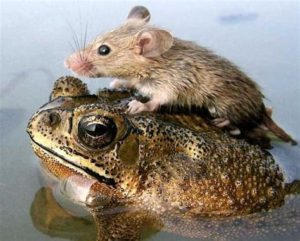 Altruism is defined as “the belief in or practice of disinterested and selfless concern for the well-being of others.” Altruism is also the title of a book written by French scientist turned Tibetan Buddhist monk Matthieu Ricard. The concept of altruism is often mentioned by spiritual teachers of all traditions.
Altruism is defined as “the belief in or practice of disinterested and selfless concern for the well-being of others.” Altruism is also the title of a book written by French scientist turned Tibetan Buddhist monk Matthieu Ricard. The concept of altruism is often mentioned by spiritual teachers of all traditions.
Simply stated, it brings happiness not only to the receiver, but to the giver.
When we give purely without wanting or expecting anything in return, that is altruism. Sometimes it’s easy to be altruistic, sometimes very difficult. It comes naturally to some, but most of us have to cultivate it.
For a mother, caring for her child is a kind of altruism that is innate. As a coach and a teacher, I enjoy helping clients and students. When I’m working one on one with someone, or when I am in the classroom, my thoughts are focused on whomever I am with and there’s an incredible freedom in that feeling.
However, Riccard also says that altruism can have an element of sacrifice. It doesn’t have to, but it may. He quotes Kristen Monroe, Kristen Monroe, professor of political science and philosophy at the University of Irvine at California, who also wrote a book on altruism called The Heart of Altruism. Here she suggests we reserve the term “altruism” for actions carried out for the well-being of others at the price of some risk for ourselves.
I received Riccard’s lastest blog post in my email inbox one day last week in which he discussed this topic. I often feel that I work more than I am paid for, and probably some of you feel the same way. But reading this article helped me realize that while I and all of you need money to live and may not always feel that we are making enough, there are other rewards for the work we do.
So I took out my phone and was confronted with an article about an 88 year old man, who, after he’d retired and his wife died, leaving him at loose ends, took a job as a school crossing guard. Doing this job brought new purpose and meaning to his life, and he took his work very seriously. The children called him “Mr. Bob.”
One day just as school was about to start, he was standing in the street with his “STOP” sign held in a prominent position. Two children were about to step into the street when he saw a car speeding toward him. He waved the children back but did not budge, and he was killed.
I was moved to tears. What a remarkable story to read so soon after reading about altruism. I don’t think Mr. Bob thought he wanted to be altruistic that day, or give up his life—he was simply protecting the children he cared so much about.
We don’t all need to sacrifice our lives, and he probably didn’t plan to die that day. But when the moment came he was solely focused on saving the lives of the children.
“The present moment is the only time over which we have dominion. The most important person is always the person you are with, who is right before you. For who knows if you will have dealings with any other person in the future? The most important pursuit is making the person standing at your side happy, for that alone is the pursuit of life.”
—Thich Nhat Hanh, The Miracle of Mindfulness
“True happiness, we are told, consists in getting out of one’s self; but the point is not only to get out – you must stay out; and to stay out you must have some absorbing errand.”
–Henry James
